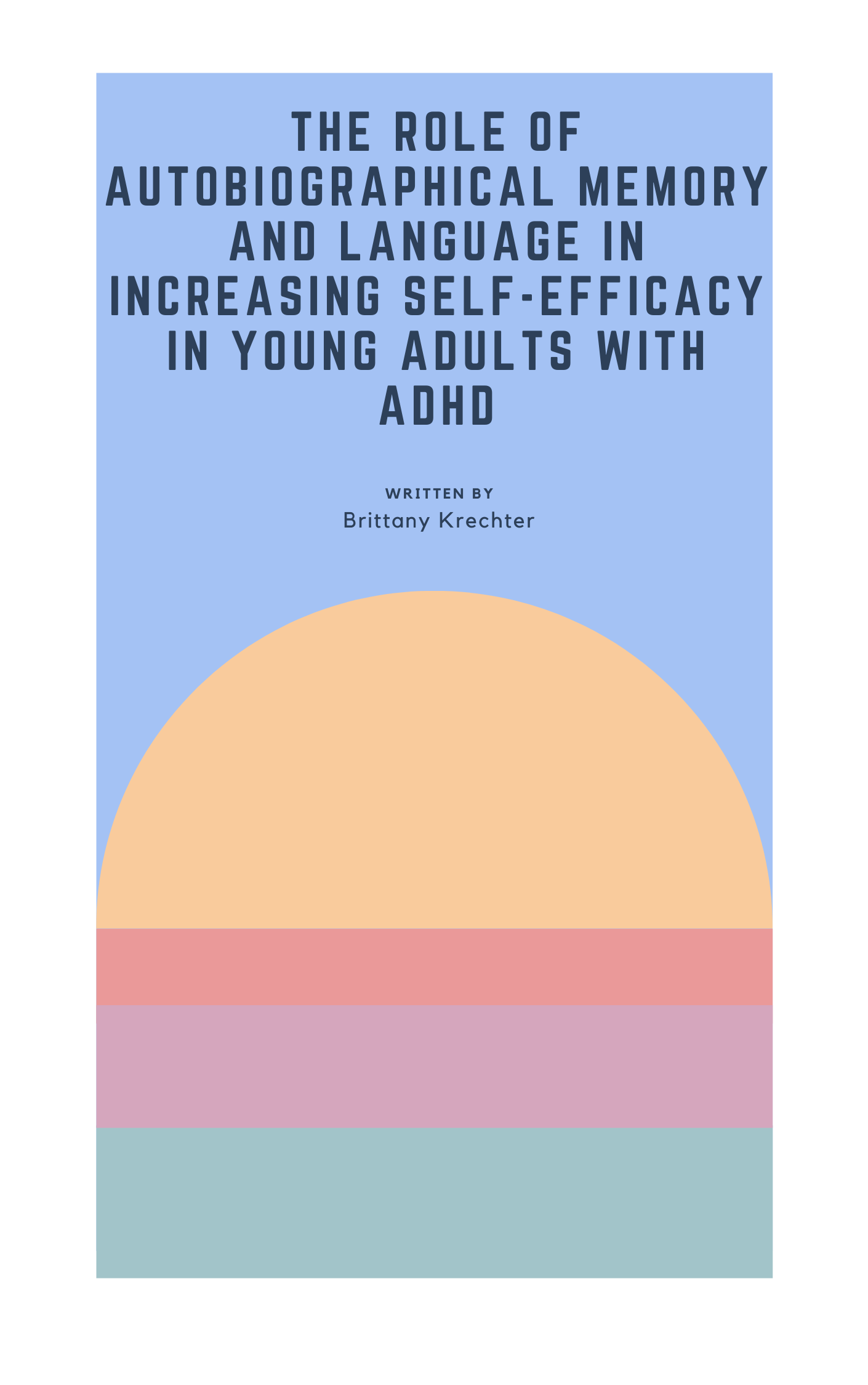Book Title: The Role of Autobiographical Memory and Language in Increasing Self-Efficacy in Young Adults with ADHD
Edited by ericakleinknecht

Book Description: This particular work is one part of the author’s undergraduate senior capstone project and is one of 11 in the series titled “Controlling the Narrative for Peace of Mind.” Seniors enrolled in Professor Erica Kleinknecht’s capstone seminar in the Spring of 2021 all used a core set of literature as a starting point and then they personalized the content to an area of their choosing. The work here reflects an integration and application of literatures in cognitive, applied cognitive, psycholinguistic fields of study, plus additional topic-specific content.
Contents
Book Information
Book Description
License
The Role of Autobiographical Memory and Language in Increasing Self-Efficacy in Young Adults with ADHD Copyright © 2021 by Brittany Krechter is licensed under a Creative Commons Attribution-NonCommercial-NoDerivatives 4.0 International License, except where otherwise noted.
Subject
Psychology
